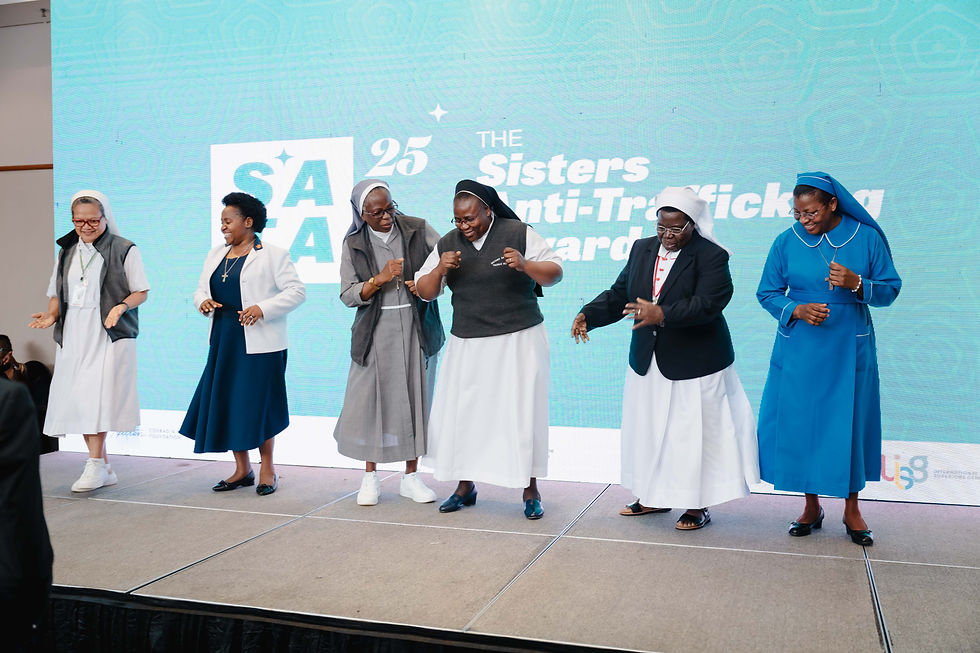From modern heroes to modern slaves - Human trafficking of Filipinos in Albania
- Arise

- May 26, 2021
- 3 min read
Both the Philippines and Albania are widely recognised as major sources of human trafficking. However, the particular nexus of Overseas Filipino Workers being trafficked and exploited in Albania is at risk of being overlooked.
By Eliza Baring, Arise
Every year, around 1 million Filipinos leave their country to work abroad. Dubbed modern-day heroes (bagong bayani), remittances from these Overseas Filipino Workers (OFWs) make up around 9% of the country’s GDP. However, in a shockingly high number of cases, OFWs are not treated as modern-day heroes when they reach foreign shores, but modern slaves.
Whilst the majority of OFWs go to the Middle East, and other parts of Asia, around 8% end up in Europe. Of these, a small number find work in Albania. According to the Philippines Consulate in Albania, as of the end of 2020, 121 Filipinos were registered as Albanian citizens. At least 30 more Filipinos have arrived in Albania this year. The majority of these are women.
There is growing concern about the treatment of these OFWs. A report by the Mary Ward Loreto Foundation (MWL) - an organisation working on the frontline in the fight against human trafficking in Albania - describes some of the exploitation they suffer. Most arrive in Albania legally, having found jobs as domestic workers, in agriculture or factories, through recruitment agencies in the Philippines. However, some are met by employers who exploit them, refusing to pay them, subjecting them to psychological and physical threats, and in some cases selling them on to other traffickers. Added to this coercion, a general fear of deportation often prevents these workers from seeking help.
MWL also described a case of a Filipino woman who was promised a job as a domestic worker in Albania. On arrival, her employer forced her to sign another contract written in Albanian. Under pressure, she unknowingly agreed to a completely different job as a masseuse working in much worse conditions.
The exploitation of OFWs in Albania is not a particularly recent phenomenon. In 2008, GMA News reported that the Phillipine Embassy in Rome had rescued 5 filipino workers from Patos (Albania) where they had been abused by their employer. Closely monitored by their boss, these workers were unable to access help themselves. It was not until the father of one of them got in touch with the Philippine Department of Foreign Affairs, who then contacted the Philippines Ambassador in Italy, that they were rescued from servitude.
The Phillippine Embassy in Rome has been proactive in supporting OFWs in Albania. In 2019, it sent a team to Tirana to help Filipinos apply for citizenship. The Embassy also ran rights empowerment workshops for female OFWs. However, the fact that this help has had to come from the Philippine Embassy in Italy is telling.
The report from MWL suggests that OFWs have little recourse to state or legal support in Albania. On its website, the Philippine Consulate in Tirana points to a weak ‘legal infrastructure’ that is failing to uphold Albanian laws protecting the rights of migrants. However, according to MWL, the Philippine Consulate has done little to help its migrants there. Compounding this is a reluctance amongst Albanian authorities to officially acknowledge these as cases of human trafficking, as they were recruited and entered the country through legitimate, legal channels.
OFWs everywhere are vulnerable to human trafficking and related forms of exploitation. Domestic workers are particularly at risk, working in private homes - unregulated spaces, hidden from view. Both the Philippines and Albania are widely recognised as major sources of human trafficking. However, this particular nexus of OFWs being trafficked and exploited in Albania is at risk of being overlooked. The dearth of support from both the Albanian and Philippine authorities must be corrected to ensure these vulnerable workers don’t continue to fall prey to exploitation.








Comments